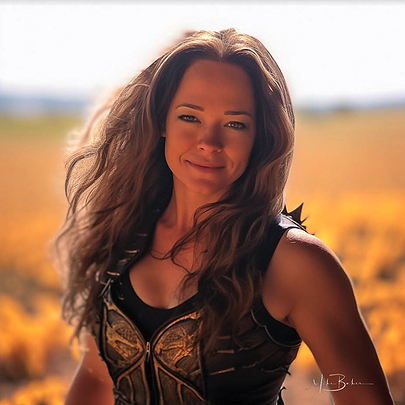Elevating 'EndoWarriors'
COEUR d'ALENE — A nearly nonexistent number of men have ever experienced the excruciation accompanied by endometriosis, an incurable disease that affects one in 10 women and girls.
The two women in Heritage Health CEO Mike Baker's family, wife Kellie and daughter Sammie, both endure this affliction. As a dad and a husband, Mike has many times felt helpless to stand by as they suffer with symptoms ranging from excessive bleeding to crippling stabbing pains throughout their abdomens, and in Sammie's case, a never-ending queasy feeling.
"I’m constantly nauseous," Sammie, 16, said Thursday. "The only time I don’t feel nauseous is when I'm asleep. I’ve had so many nights when I'm up all night crying because I'm in so much pain from cramps. We have had to figure out a system to work through those hard nights. There isn’t really anything that helps."
Endometriosis occurs when tissue similar to the lining of the uterus grows outside the uterus. It often causes severe pelvis pain and can cause fertility challenges. It is also known to cause fatigue, diarrhea and constipation as well as pain with intercourse, urination and bowel movements.
One night about a year ago, Mike came home to find his daughter in bed, sobbing and in pain.
“There’s just nothing I could do,” Mike said. “As a dad, I just broke. I couldn’t take this away for my daughter."
Unwilling to do nothing, Mike spent hours researching online. He stumbled upon an artificial intelligence image generator and a lightbulb went off in his head.
"That just spun off into, ‘Oh my gosh, I could do something here,’” he said. “I want Sammie to always know she’s so strong.”
Mike became an "EndoDad" and an "EndoHusband," entering the global endometriosis community to raise awareness and empower "EndoWarriors" through AI pieces that depict the strength within the women suffering from this disease.
"What I wanted to do was make sure people don't ever give up on hope. You've got to have hope," Mike said. "If you're in pain, if you have something going on, to be able to look at an image and go, 'This is what everyone sees inside me but I can't see it right now.' ... It all started from desperation and a dad's hope to just do something."
Mike has created about 300 of these images for people around the world, turning selfies they send to him of endometriosis patients into warrior queens in shimmering armor, captains of their own destinies who see they are stronger than they realize.
"It's never going to be an exact likeness of them, but we're going to find your warrior," Mike said. "It's almost like your alter-ego, that person in you who can just slay anything."
Sammie and Kellie have both suffered low points from this disease, when they curl up in balls and are unable to participate in the world. They've both undergone surgeries and continue to battle what others cannot see.
Mike said diagnosis can take anywhere from eight to 10 years as endometriosis is so difficult to detect.
"The pathway to diagnosis is so convoluted," he said.
His goal is to raise awareness and advocate for women to be screened for it. Heritage Health is providing endometriosis training for its nurse practitioners and physician's assistants so its medical team is better versed in diagnosing and treating this devastating affliction. The clinic is also planning events for March, which is annually observed as National Endometriosis Awareness Month.
"Instead of eight years later going, 'Oh that was endometriosis,' we catch it now," he said.
The gold standard to treat it is surgical removal, Mike said. Previous treatment, which is still used in some practices, is to burn it out of the patient's body.
As an endometriosis patient, Sammie said she loves that her dad is advocating for her mom and her, as well as women everywhere who suffer the same misery as they do.
"So many people feel alone in their journey with endometriosis," Sammie said. "I find it really awesome he’s trying to make people feel not so alone and that there's others experiencing what they’re going through."
She shared advice for other women who suffer extreme symptoms with their monthly cycle and may be one of the 6.5 million in the U.S. who have endometriosis.
"What you think might be normal is more than likely not normal," Sammie said. "Your period should not be painful, so painful you cannot function. That’s not normal."
See Mike's artwork: instagram.com/endodad76
Get screened: myheritagehealth.org
 Heritage Health CEO Mike Baker generated this "EndoWarrior" AI portrait of his daughter, Sammie, who was diagnosed with endometriosis at age 15. More than 6.5 million women in the U.S. have endometriosis, a disruptive disease associated with the uterus that causes painful menstruation, fatigue, nausea and other extreme symptoms.
Heritage Health CEO Mike Baker generated this "EndoWarrior" AI portrait of his daughter, Sammie, who was diagnosed with endometriosis at age 15. More than 6.5 million women in the U.S. have endometriosis, a disruptive disease associated with the uterus that causes painful menstruation, fatigue, nausea and other extreme symptoms.



